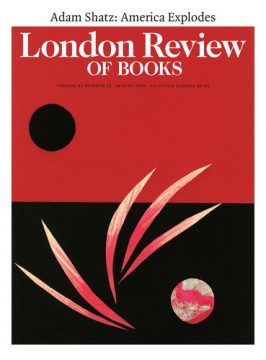 Adam Shatz in the LRB:
Adam Shatz in the LRB:
In July 1999, the writer Joe Wood vanished while attending a conference of journalists of colour in Seattle. He was 34, a brilliant essayist, ferocious in his critiques of racism – not least as he experienced it in the ‘liberal’ publishing world. The last time we met, a week before his trip to Seattle, he was wearing a Malcolm X cap and carrying a well-worn copy of William Gaddis’s novel The Recognitions. On 8 July, after a breakfast with the Democratic presidential candidate and former basketball star Bill Bradley, Joe went to Mount Rainier to do some birdwatching. He never returned. The most likely explanation is that he fell down a ravine and lost consciousness (he had a heart condition), but Washington is a very white state, and some of his friends and family suspected racist foul play. At the time I doubted this; now I’m not so sure. One of his friends told a reporter that he hadn’t packed any provisions because he was only ‘going out for a couple hours ... sort of like going to Central Park’.
I thought of Joe when I read about Christian Cooper, the black birdwatcher who crossed paths with a white woman and her dog in Central Park on the morning of 25 May, the same day George Floyd was killed when a police officer in Minneapolis knelt on his neck for nine minutes. There are ‘white spaces’ in Central Park, and the Ramble, a wooded area popular with birdwatchers, is one of them. Cooper is 57 – almost exactly the age Joe would have been – a Harvard graduate, a member of the Audubon Society and a civil rights activist. He politely asked the woman to put her dog on a lead, as is required in the park. She refused and grew increasingly aggressive, eventually calling the police to report that ‘there’s an African American man ... threatening me.’ As W.E.B. Du Bois wrote in a 1932 essay for the Crisis: ‘Nothing in the world is easier in the United States than to accuse a black man of crime.’
The same could be said today, more than half a century after the end of legal segregation.
More here.
